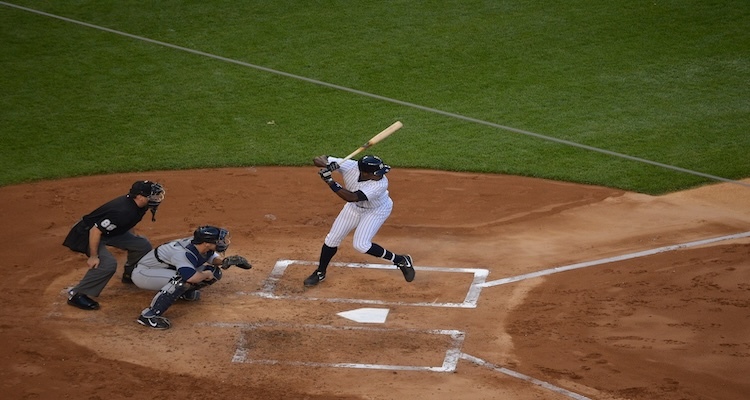
Baseball's strategic nature may contribute significantly to cognitive longevity, according to recent neurological research. Studies examining retired players suggest that the complex decision-making required in baseball might support brain health through multiple mechanisms. Players like Nolan Ryan, who pitched effectively until age 46, demonstrate remarkable cognitive adaptation. His ability to analyze batters and adjust strategies over a 27-year career exemplifies the mental acuity baseball demands.
Research from sports psychology institutes indicates that baseball's combination of strategic thinking and physical execution engages multiple brain regions simultaneously. Scientists studying aging athletes have noted that sports requiring quick decisions and pattern recognition, like identifying pitch types or fielding positions, might help maintain cognitive function well into later years. The continuous need to process spatial information, anticipate opponent actions, and make split-second decisions potentially creates neural pathways that support long-term brain health, though more comprehensive longitudinal studies are needed to confirm these findings.
If you are unable to engage in any physical activities requiring brain stimulation due to a medical condition and still harbor your passion for sport, there are other ways of mental training that are somehow related to sports. MLB Betting Sites coupled with informed decision-making for baseball lovers, participating in chess tournaments, analyzing teams’ statistics, or debating with sports experts might be all invigorating for healthy brain functioning.
Baseball's varied movement patterns appear to support joint health and muscular balance through diverse biomechanical demands. Research examining retired players at major sports medicine centers suggests that baseball's mix of activities might promote sustainable physical activity patterns that can persist through aging. The sport combines periods of rest with precise, explosive movements, potentially allowing for better recovery compared to constant high-impact sports. Nolan Ryan's career provides interesting insights - his training regimen emphasized flexibility and controlled power rather than constant high-intensity work. Similarly, Ichiro Suzuki's remarkable durability might be attributed to his unique combination of speed and precision movements. Studies focusing on throwing mechanics indicate that proper baseball movements might help maintain shoulder and hip mobility when practiced correctly. Research conducted at sports performance laboratories suggests that the rotational elements of baseball activities could support core strength and spinal mobility, though these findings primarily come from professional athlete populations.
Veterans like Ichiro Suzuki, who played professionally into his mid-40s, often credit consistent lifestyle habits and careful recovery practices for their longevity. Medical research indicates that baseball's structured schedule may encourage regular sleep patterns and nutrition habits that support long-term health. Sports medicine experts studying professional baseball players have identified several key factors in career longevity: consistent sleep schedules aligned with game times, carefully planned nutrition to support recovery, and strategic rest periods between high-intensity activities. The season's natural rhythm of alternating game days with rest or practice sessions might allow for better physical recovery compared to sports with more constant high-intensity demands. Studies examining baseball veterans suggest that successful players often develop sophisticated recovery routines incorporating elements of both traditional and modern techniques. Research from sports science institutes indicates that this balanced approach to activity and recovery might provide a sustainable model for long-term athletic participation, though individual responses vary significantly based on genetic factors and injury history.
Baseball's social aspects potentially contribute to overall well-being. Studies examining team sports suggest that regular social interaction might support mental health and motivation for physical activity. Amateur leagues and recreational programs often provide community connections that extend beyond playing years. Research indicates social support networks might influence exercise adherence, though exact mechanisms require further study.
Professional veterans demonstrate how baseball skills can adapt with age. Players often modify their approach as physical capabilities change, suggesting potential models for recreational athletes. Research examining aging athletes indicates that strategic adaptations might help maintain performance levels, though individual results vary significantly. Studies suggest that understanding these adaptation patterns could benefit recreational players seeking long-term participation.
Current studies examine several aspects of baseball longevity:
These investigations might provide clearer guidance for recreational players seeking health benefits through baseball participation.
Baseball's combination of physical and mental elements appears to support healthy aging patterns, though research continues exploring specific mechanisms. Veterans' experiences suggest that proper adaptation and consistent habits might extend playing careers, while social aspects potentially support long-term participation. Future studies may reveal additional connections between baseball participation and healthy aging, though current evidence suggests positive associations when appropriate activity levels are maintained.
The sport's potential benefits extend beyond professional players to recreational participants, though individual results vary based on multiple factors. Understanding how baseball veterans maintain performance might inform strategies for amateur players seeking similar longevity benefits. As research continues, new insights may emerge regarding optimal approaches for using baseball as a tool for healthy aging.
This is a Sponsored Post
